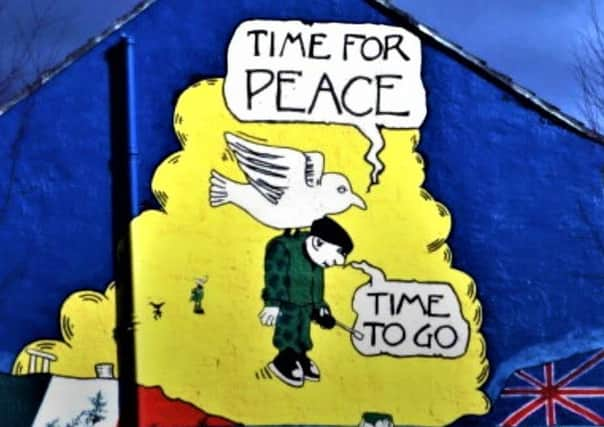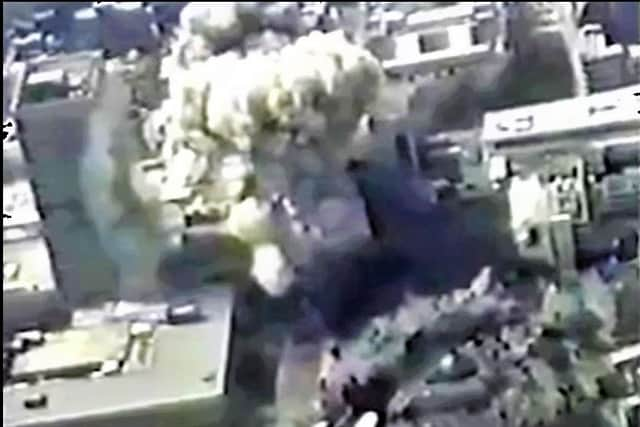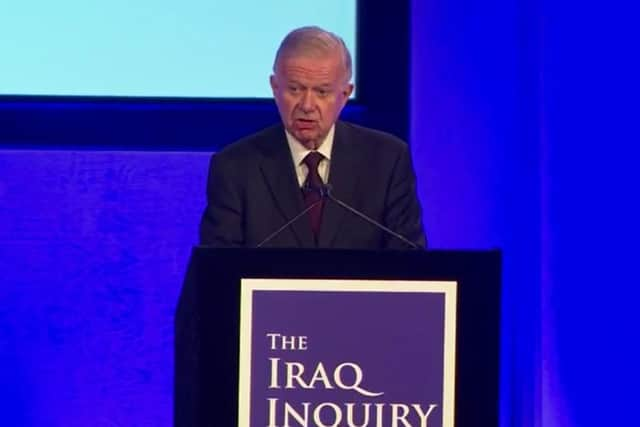Ex-NIO boss Sir John Chilcot – credited with securing 1994 IRA ceasefire and aiding Northern Ireland peace process – dies at 82


Sir John Chilcot not only served as the top government official in Northern Ireland, but also went on to investigate the notorious Castlereagh break-in.
However, he may be best known for his forensically detailed report into the UK’s invasion of Iraq and its aftermath, known simply as The Chilcot Report.
Advertisement
Hide AdAdvertisement
Hide AdAn array of media sources yesterday reported that he had died, aged 82. His death was reportedly of kidney disease.


Born in 1939, he was educated at Brighton College and then Pembroke College, Cambridge. There he studied English and medieval languages.
He married his wife Rosalind, an artist, in 1964.
He took up the post of permenant secretary at the Northern Ireland Office in 1990, and remained in post until the end of 1997.
During that time, the department saw a trio of ministers in charge: firstly Tory MPs Peter Brooke and Sir Patrick Mayhew, then Labour MP Mo Mowlam from May 1997.


Advertisement
Hide AdAdvertisement
Hide AdIn that role, he was involved in exploratory talks with Sinn Fein about trying halt the IRA’s so-called long war.
The Telegraph for example describes his role as follows: “[B]ehind the scenes, Chilcot was at the centre of efforts to reach a peace accord with the IRA, pulling together strands of intelligence and reports of contacts ... the IRA ceasefire of September 1994 was the result of this process.”
Lawrence Freedman, emeritus professor of War Studies King’s College London, described him as “a public servant of the old school, a combination of charm, integrity and a brilliant mind”.
Meanwhile, Galway politics professor Niall O Dochartaigh (who authored a book on the state’s backchannel negotiations with the IRA) said: “In his own understated way, John Chilcot was probably the single most important driver of the Northern Ireland peace process in the crucial early years.”
Advertisement
Hide AdAdvertisement
Hide AdThough he retired in December of 1997, he remained extremely active in the affairs of state.
He went on to sit on the National Archives Council, serve as president of The Police Foundation think-tank, was part of the 2004 Butler Review of intelligence on weapons of mass destruction, and was staff counsellor to the UK security and intelligence agencies from 1999-2004.
This latter role involved making himself “available to be consulted by any member of the agencies regarding matters of conscience about the work of their service”.
Multiple media sources give his date of death as October 3 (Sunday).
His wife is understood to survive him.
FROM CASTLEREAGH TO KIRKUK:
Advertisement
Hide AdAdvertisement
Hide AdOn St Patrick’s Day 2002, the police complex in Castlereagh, east Belfast, suffered a break-in, with sensitive files stolen in what was widely assumed to be an IRA raid.
SF’ s Gerry Kelly said at the time: “The IRA said that they were not involved. All of the evidence points to the involvement of elements of the intelligence agencies in this raid.”
Sir John was appointed to look into the security breach, and the NIO said he “did not uncover any evidence whatsoever that members of government agencies were in any way involved”.
He also put forward a string of recommendations for tightening up security.
Advertisement
Hide AdAdvertisement
Hide AdBut the event which will always be most associated with him is the one bearing his name: the Chilcot Inquiry.
It began in 2009 and was meant to last a year.
Instead it lasted seven.
The Guardian notes that “until his verdict on the Iraq war in 2016, Chilcot was seen as an establishment figure and a safe pair of hands who people thought would not rock the boat”.
It turned out to be a bombshell, which tarnished the reputation of the war’s advocates, finding that Iraq posed no imminent threat to UK interests and that post-war planning had been “wholly inadequate”.
An article in world-renowned medical journal The Lancet estimated that, between the invasion of Iraq in 2003 to mid-2006, somewhere between about 393,000 and 943,000 “excess deaths” of Iraqis occurred, with the best estimate being about 655,000 – or roughly 2.5% of the entire population in the area being studied.
Advertisement
Hide AdAdvertisement
Hide AdOverwhelmingly, the authors of the journal paper said these “excess deaths” were violent ones, with their best estimate being about 601,000.
The Lancet study also noted that, as of 2006, rates of death were escalating further.
Ultimately, no-one knows to the nearest hundred-thousand how many people have been killed.
More from this reporter:
Advertisement
Hide AdAdvertisement
Hide AdA message from the Editor:
Thank you for reading this story on our website. While I have your attention, I also have an important request to make of you.
With the coronavirus lockdown having a major impact on many of our advertisers - and consequently the revenue we receive - we are more reliant than ever on you taking out a digital subscription.
Subscribe to newsletter.co.uk and enjoy unlimited access to the best Northern Ireland and UK news and information online and on our app. With a digital subscription, you can read more than 5 articles, see fewer ads, enjoy faster load times, and get access to exclusive newsletters and content. Visit https://www.newsletter.co.uk/subscriptionsnow to sign up.
Advertisement
Hide AdAdvertisement
Hide AdOur journalism costs money and we rely on advertising, print and digital revenues to help to support them. By supporting us, we are able to support you in providing trusted, fact-checked content for this website.
Ben Lowry
Acting Editor